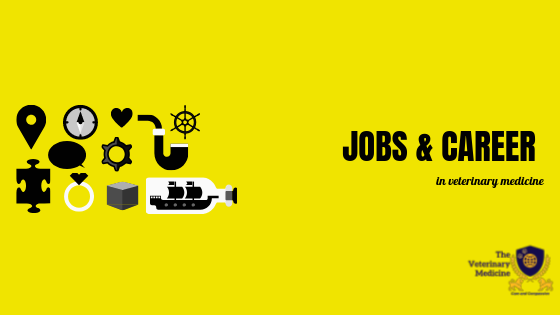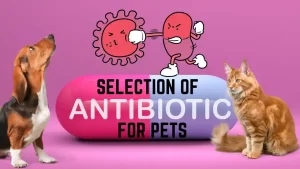Carrier opportunities or Scope in Veterinary Medicine or Veterinary Science/ Veterinary in India
Being a veterinarian is like creating a difference and standing out of crowd!
Veterinary Science is an area of study that has enamoured many. A veterinarian / veterinary physician / veterinary surgeon or vet is a person who treats animal diseases, disorders or injuries by giving medical treatment or using veterinary medicines. A veterinarian helps in protecting the health and well-being of both animals and people. In fact, many consider the option of becoming Veterinary Scientists because of the love for the discipline. If you want to be a veterinarian and practice veterinary medicine, it is essential to have a Bachelor’s degree in Veterinary Science (B.V.Sc.) or Bachelor’s in Veterinary Science and Animal Husbandry (B.V.Sc. and A.H.) course from a recognized institute (Click here for list of Colleges), a candidate should have passed the senior secondary examination with science subjects such as Physics, Chemistry and Biology (Click here to know about admission process). DVM or Doctor of veterinary medicine is the equivalent degree being awarded in countries like USA.
On completion of the B.V.Sc. and A.H., most of the learners go on to pursue the post-graduate programme, viz., Master in Veterinary Science. Master degree program or M.V.Sc. is a two-year course and the candidate has the option of specialising in subjects or animal science and veterinary science subjects both eg. medicine, surgery, anatomy, biochemistry, microbiology, molecular biology, gynaecology, pathology, pharmacology, livestock product and technology, animal breeding and genetics, animal nutrition, parasitology etc. In veterinary science or medicine there is no specific qualification is awarded like cardiologist, dermatologist, nephrologist, urologist, ultrasonologist, radiologists etc. Only M.V.Sc. degree is awarded in respective subjects like M.V.Sc. in Veterinary Surgery and Radiology but you can choose the topic of your choice if your guide permits and facilities for research in department are available. A veterinarian having undergraduate degree is authorised for writing prescription, doing surgeries; ultrasound, preparing various reports and certificates etc. though experience and expertise will help you in gaining more confidence. For veterinary jobs or scope in veterinary in the research and teaching areas, a post-graduate degree in veterinary science and animal husbandry is a minimum qualification, while a Ph.D. is preferred. Ph.D. in different subjects takes 3 years time.
The career options or jobs for vets in the field are:
1. State Government
a) Veterinary Hospitals / Primary Veterinary Centers
b) Organised State Farms for managing livestock farms.
c) Semen collection Banks/Sperm collection Stations – where quality bulls or males are kept. Semen is collected and processed for artificial insemination.
d) Poultry Farms – for managing egg farms, hatcheries, chick rearing units.
e) Meat / Milk / Animal products processing plants– for supervising of hygienic collection & distribution of milk or meat or other animal products meant to be consumed by human.
f) Polyclinics – where specialised service like surgery, special diagnostics, specialised treatment etc. is given.
g) Disease investigation centers or Disease diagnostic centers – These are established by government and job in such centers is to survey disease profile and investigate any occurrence of a major disease, zoonoses, epidemics etc.
h) Biological products or vaccine institutions – prepare quality control & distribute vaccines & biologicals.
i) Disease eradication schemes/ check posts/vaccination camps.
j) Public health labs – investigation of disease transmissible from animals to man and vice versa.
2. Centralised Sectors
a) Remount Veterinary Corps – RVC – In army / armed forces there are posts or jobs for veterinarians to train and look after Horses, dogs camel etc.
b) Border security forces (BSF)/ Indo-Tibetan Border Police (ITBP) or police – to look after Horses, dogs, camels etc. in the forces / Intelligence or for the post of Assistant Commandant or equivalent post.
c) I.C.A.R. (Indian Council of Agricultural Research) – co-ordination and funding of animal based research / projects.
d) Animal Husbandry & Dairying Department, Ministry of Agriculture – They need veterinarians for administrative management & coordination of veterinary services in the states and implementation and formation of policies.
e) Quarantine Units – these are international check posts for preventing entry of exotic disease in the nation like mad cow disease or fowl influenza in country from outside by importing or transporting animals.
f) Central Farms – Unlike state farms & sperm collection centers or stations; they also conduct trainings.
g) Medical institutions: as a veterinary officer (post graduation in public health or competent subject may be necessary)
h) Civil services and public services: Apart from these posts, many veterinary graduates these days write the state group I exams and the UPSC exams to become administrators like IAS, IPS, IRS as well as Dept. Supt. Police and equivalent jobs through competitive exams.
3. Academic/Research/Extension Wing of Veterinary Colleges in State Agricultural universities, State Veterinary Universities, or Universities having Veterinary Faculty.
a) Teaching/Research/Extension in Veterinary College/Institutes/Universities.
b) Para Veterinary Staff / Live Stock Assistant training schools.
c) Experimental & germ free animal facilities attached to Veterinary & Medical Institutions or colleges, Drug research institutions.
d) Experimental Animal Unit – require vets for Animal model preparation for experiments etc.
e) Clinical, diagnostic & investigation centers or labs established in veterinary colleges and research institutes.
4. Local Bodies/Municipalities/Panchayats
a) Slaughter houses/Cattle Pounds/Public health Laboratories
b) Zoos & wildlife centers
c) Animal resource development under Panchayati Raj.
5. Private Sector
a) Pharmaceuticals
b) Commercial dairy farms
c) Commercial poultry farms
d) Commercial breeding farms/hatchery etc.
e) Race club, stud farms
f) Veterinary instruments/equipment industry
g) Biological products and vaccine product plants
h) Insurance companies, banks – as probationary officer
i) Corporate bodies eg. National Dairy Development Board, Cooperative dairies, Milk board, Milk Unions etc
j) Feed processing industry
k) NGOs – as investigator, chief investigator and field veterinarian.
* MBA in Agri-business management from a good institute may help in getting a job and good salary in private sector like insurance companies and pharmaceuticals.
6. Self Employment
a) Private Practice – Companion animal veterinarian (Pet clinic) / Large animal or food animal veterinarian
b) Consultancy
c) Partner, Assisting to an existing Practitioners.
d) Entrepreneur in Livestock Farms, Dairy Farms, Poultry Farms, Goat Farms, Piggeries, Dog Breeding etc.
e) Diagnostic labs (Pathology, Biochemistry, Microbiology)
f) X-ray, Ultra-sound facility.
g) Media – as a freelance worker, blogger or scientific article writer, proof reader etc (part time income source – Less stability)
h) Animal law expert (Courses are available)
7. Abroad
You can choose from working as a veterinarian or faculty in institutes or fellow in research programs (You will have to fulfil eligibility criteria and clear exams like TOEFL GRE etc. for this, working permit or visa will also be required). Early planning is necessary and proper strategy will help.
Salary of a Veterinarian:
Salary is obliviously important in any profession but it is good as compared to other ordinary professions. The salary of veterinarian may vary state to state and organisation, expertise and experience. Starting pay of 25,000 to 45,000 INR per month for a fresher is decent and it can increase depending upon experience and your specialization. In private practice it depends on you and you can earn more than 1,00,000 INR or more also which depends on your hard work. Veterinary surgeon or veterinary officer is a first grade / gazetted officer job in India. In other countries salary is higher but you will have to plan your future from at least 3rd year of your graduation.
You create your own worth. Start learning new things which help in growing in terms of knowledge and wealth both.
You may find this profession less paying / rewarding but surely it’s a noble profession and feeling of treating speechless animals can’t be described in words. Competition is increasing day by day in each sector but if you have skills there will be no problem in getting a job as a veterinarian. Working with small animals and large animals / wild life is completely different experience. Choose your career carefully. Wish you best of luck and success.






Pingback: Bachelor of Veterinary Science [BVSc] Bachelor of Veterinary Science and Animal Husbandry [BVSc & AH] – The Veterinary Medicine